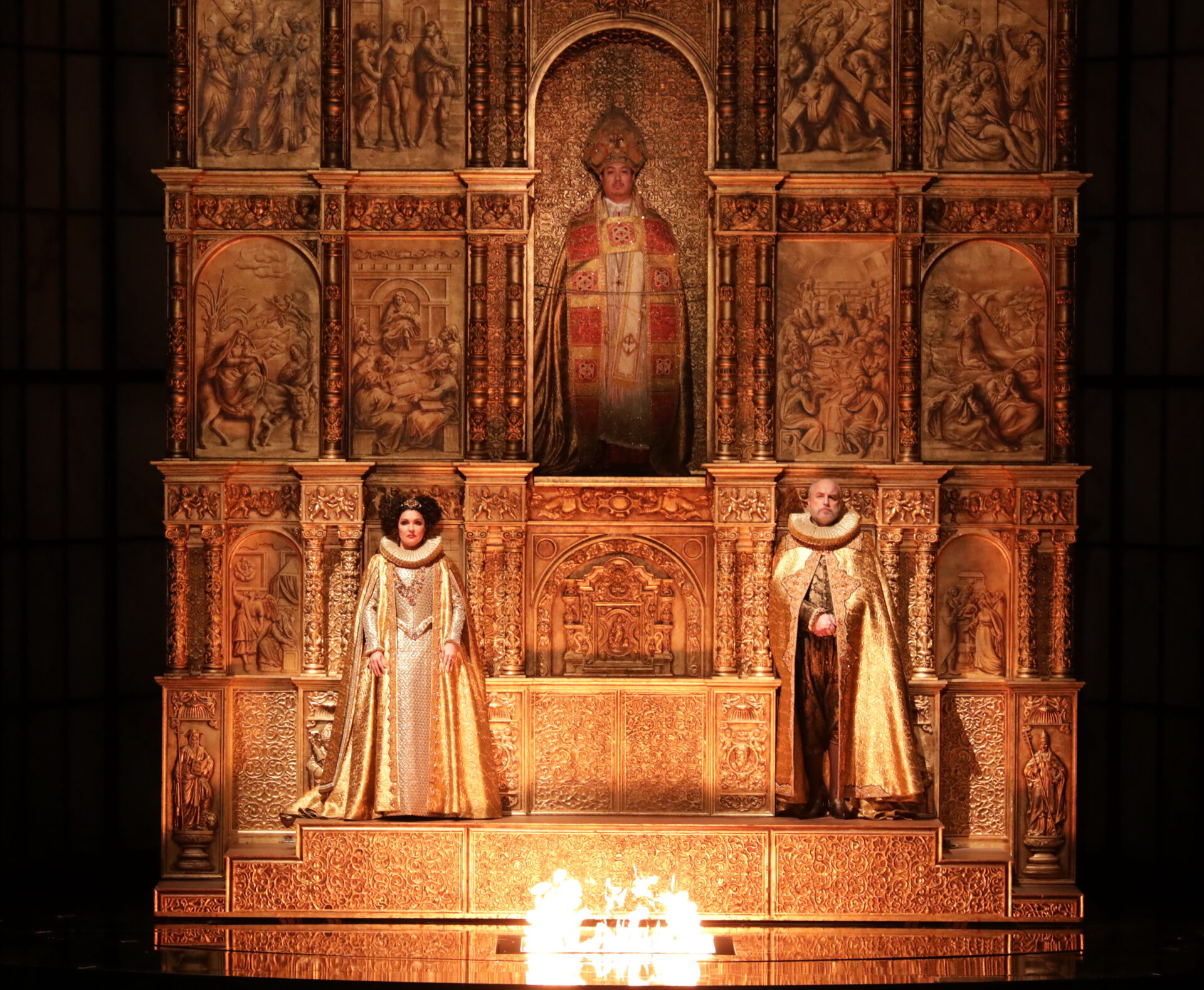The evening of December 7 in Milan’s world-famous Opera House Teatro alla Scala is probably the busiest, and the house, which seats about 3000 people with its boxes, stalls and loggione seats on the top (there is a special daily queue to get tickets) is probably the most packed. On this day, which is the saint of Milan Sant’Ambrogio day the opera house traditionally begins its new season and ‘opens’, although its previous season usually has the shows into October and November, so audiences are not left without the shows. The opening night is a huge deal – there is a special box for Italian president and Italian prime-minister in La Scala, but this year it was the Milan mayor Giuseppe Sala, the 93-year old senator-for life and Holocaust survivor and Liliana Segre and Senate Speaker Ignazio La Russa that took the seats in the front row of the adorned royal box of the theatre that takes its name from Italian ‘steps’ or ‘stairs’ word ‘scala’. It stands on the site where once the church Santa Maria alla Scala, which is famous for saving the boy for whom his mother prayed, while placing the image of Santa Maria on the top of the stairs. The theatre opened in 1778 with Antonio Salieri’s Europa Riconosciuta and keeps the traditions of opening nights ever since.
The new La Scala season opens on December 7 with stunning Don Carlo
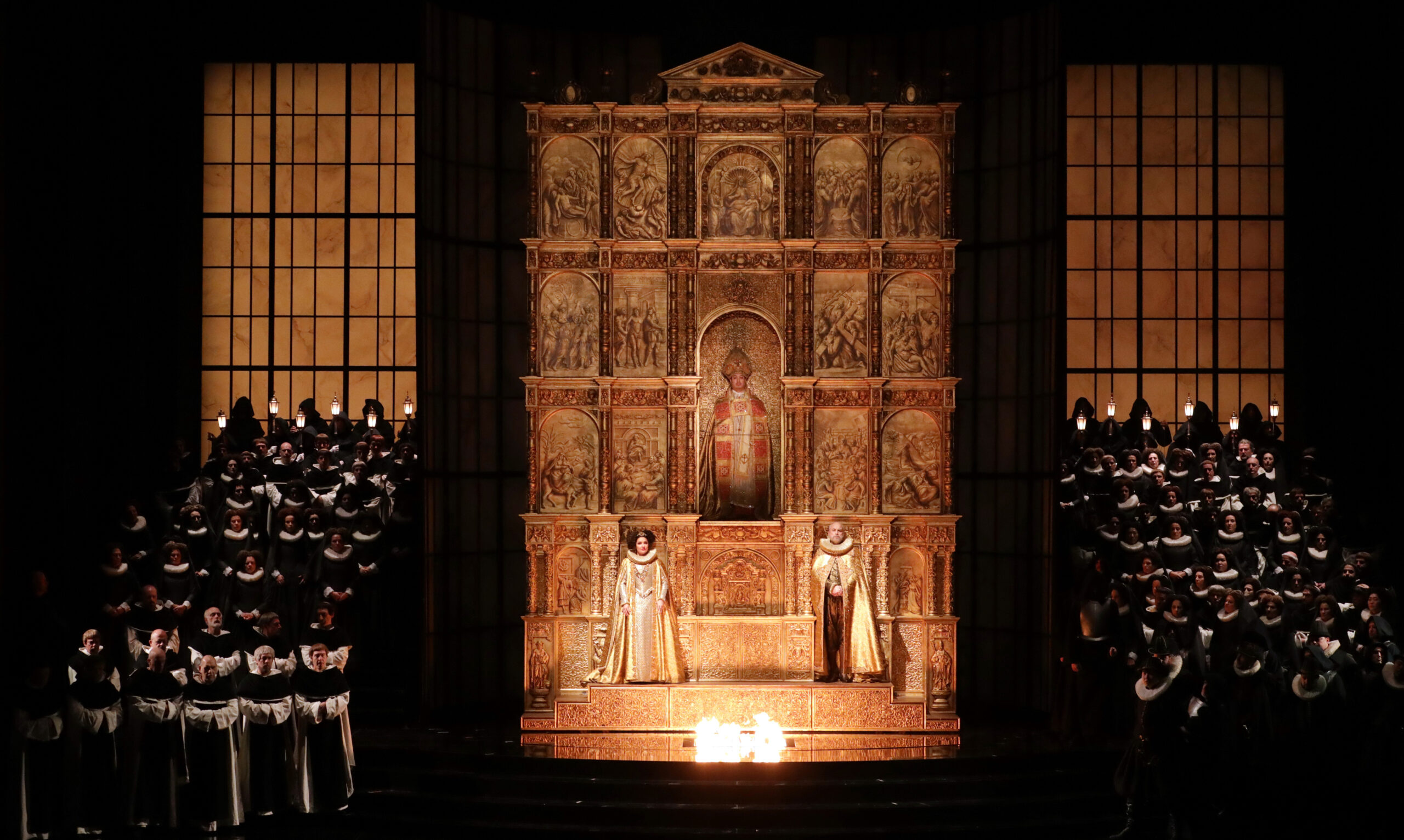
The opening night was Don Carlo in Spanish-Catalan’s director Lluís Pasqual’s production, with sets by Daniel Bianco, costumes by Franca Squarciapino, lighting by Pascal Mérat and video by Franc Aleu. Pasqual is a famous theatre director who had worked with Giorgio Strehler in Milan and later founded his own Teatre Lliure in Barcelona and had also been the head of Théâtre National de l’Odéon in Paris. It is not the first time Pasqual works with La Scala, although there were some distinctly audible boos from the theatre’s loggione (these seats are famous for shouting out their verdict in the middle of the show and influencing the performance) as he stepped onto the stage in the end of the 4-hour-long performance. By the way, another fact about the opening night is that it historically has to finish before midnight, so, Cinderella-like, starts at earlier times to accommodate the longer shows.
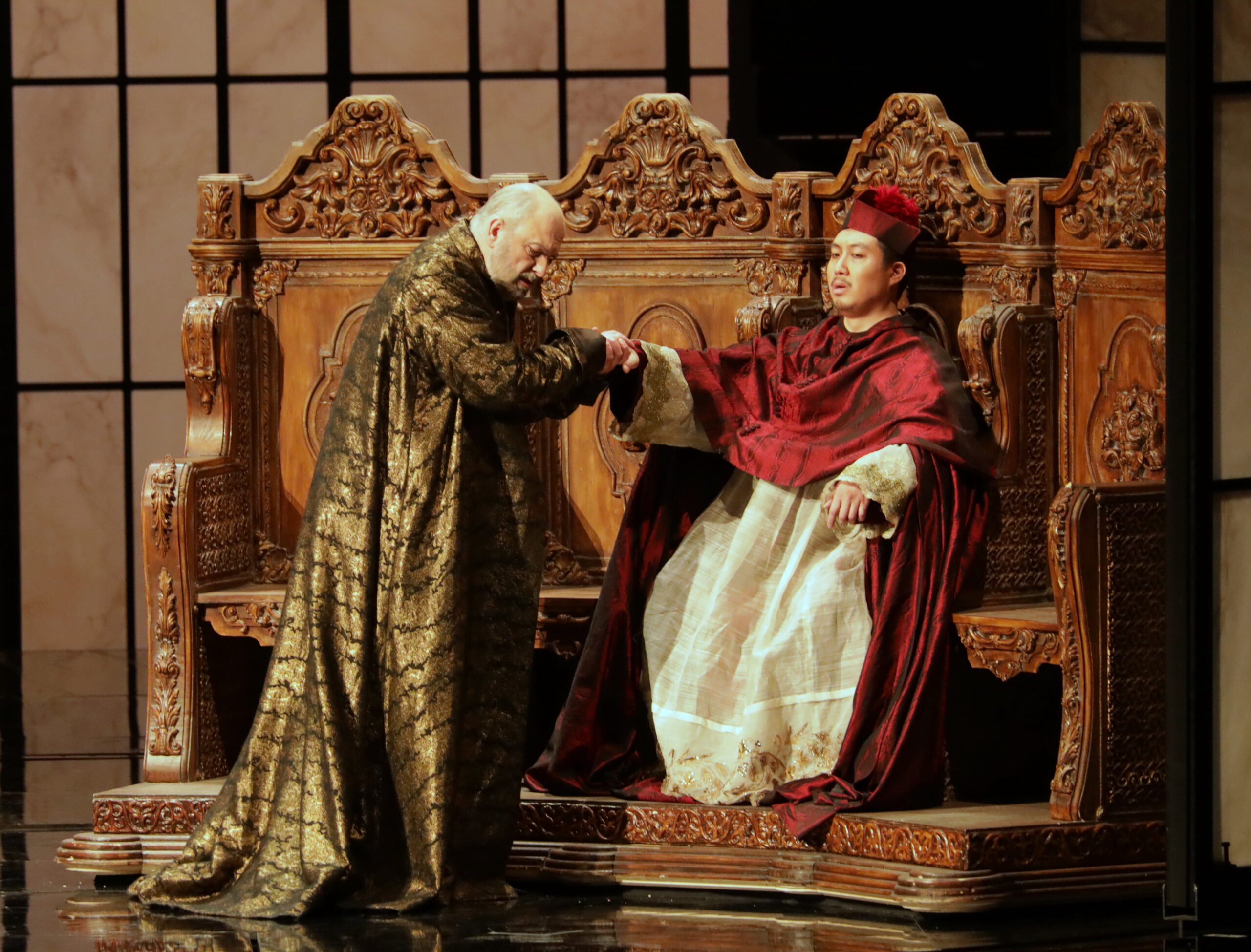
This year’s opening night started at 6pm (CET) and was broadcast live on Italian television Rai1, the broadcasting app RaiPlay, in cinemas in Italy, Spain and worldwide, on the digital live streaming service Medici TV, as well as on several radio channels in Europe live or set for later dates in December. It could also be seen on big screens in shopping malls and city squares, as well as in Italian institutes worldwide and on chosen TV channels (Greece, Portugal, Japan). One could be definitive about yes – the performance is a big deal and is discussed by the audiences and music critics in the days before and after it. This year’s production of Don Carlo was not such a theatrical breakthrough as last year’s Boris Godunov (featuring Ildar Abdrazakov in the title role) by Modest Mussorgsky in a stunning and memorable production by the Danish director Kasper Holten.
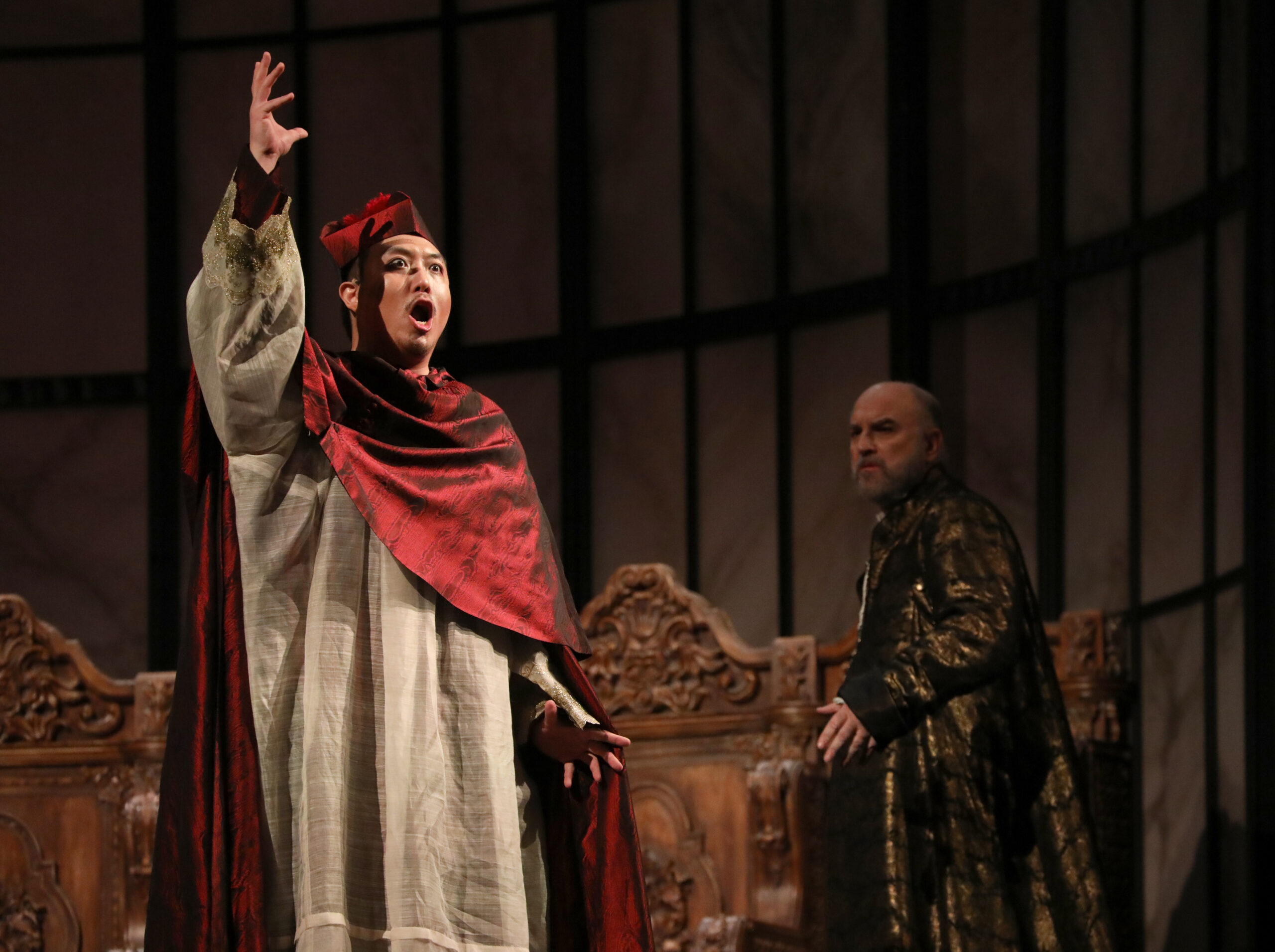
The production of Don Carlo retained the expected grandeur of the opening night in Daniel Bianco’s settings who chose to symbolically transfer the state into a golden cage which boasts gilded doors and magnificent stairs, but serves as a jail for the characters, especially those of Elisabeth of Valois and Don Carlo, Infante of Spain. The characters, wearing stunning royal gowns designed by Franca Squarciapino, always feel claustrophobic and are aware that this beautiful house could collapse the next second, with the decorations of the palace looking surprisingly similar to the railings of the prison in the fourth act of the opera. Surprisingly, the famous auto-da-fé scene with the burning of heretics is decided by Pasqual in a very quiet, reticent way, with no impressive deaths on stage. The overwhelming presence of religious oppression is presented through the figure of the Grand Inquisitor (originally Ain Anger rehearsed this role, but was substituted by Jongmin Park), with the spirit of the deceased Charles the Fifth adding the eeriness to the performance by speaking through the chantings of the Monk (Huanhong Li) towards the end of the opera. Friedrich Schiller’s political tragedy (1787) lends itself perfectly to operatic interpretation, with Verdi’s masterpiece (1867) having been based on the libretto by Joseph Méry and Camille du Locle, with additional scenes borrowed from Eugène Cormon’s play about Philippe II (1846). Since its premiere it has been considered a classic, one of Verdi’s late masterpieces staged in the opera houses worldwide and having beautiful arias for all five voices (bass, baritone, tenor, mezzo-soprano and soprano), and has previously been performed many times in Milan’s La Scala.
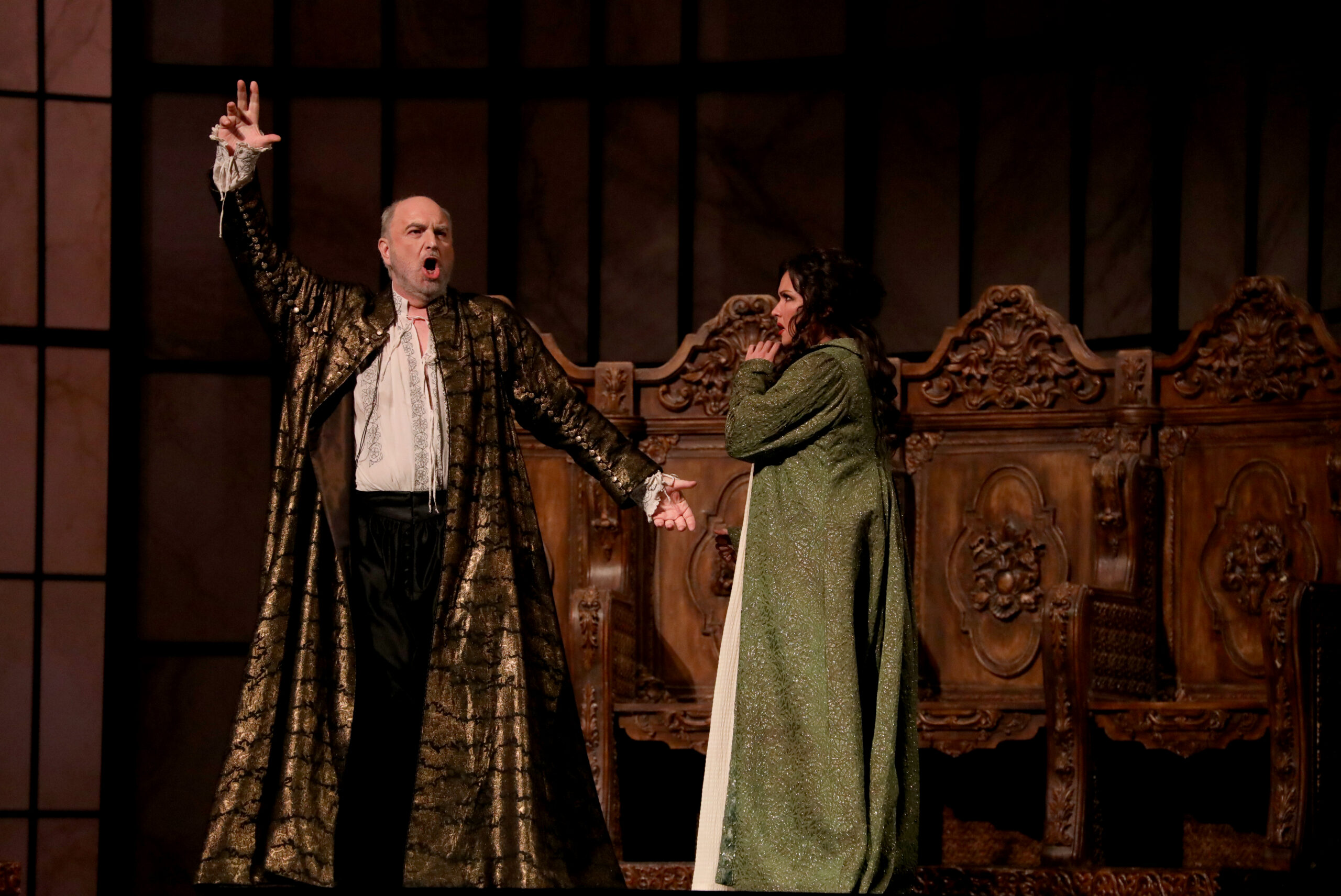
This year’s Don Carlo made the evening magnificent mainly due to its exquisite music component ensured by La Scala’s music director, the Italian conductor Riccardo Chailly and the stellar cast of singers who are in no way newcomers at the famous stage. Although the performance was quite long and involved two 30-minute intermissions, it was so good vocally and musically that it seemed that an invisible in-depth theatre and drama was developing in parallel to visual settings and movements of performers on stage. I actually think that this particular production took on another dimension if listened to on radio, apart from missing the stunning looks of the female performers of the cast who were indeed beautiful and imposing. If you think about the dream cast for Don Carlo, that could possible be one: Anna Netrebko as Elisabeth of Valois, the Latvian superstar Elīna Garanča taking the role of Princess Eboli, with wonderful and equally strong singers (and that’s important for this particular opera) appearing in the roles of Don Carlo (Francesco Meli) and Rodrigo, Marquis of Posa (Luca Salsi), and with Michele Pertusi taking on the role of Philip II, King of Spain. Riccardo Chailly was extremely attentive to the specifics and rhythms of each singer, and even applauded some of the arias from the pit, which was very touching.
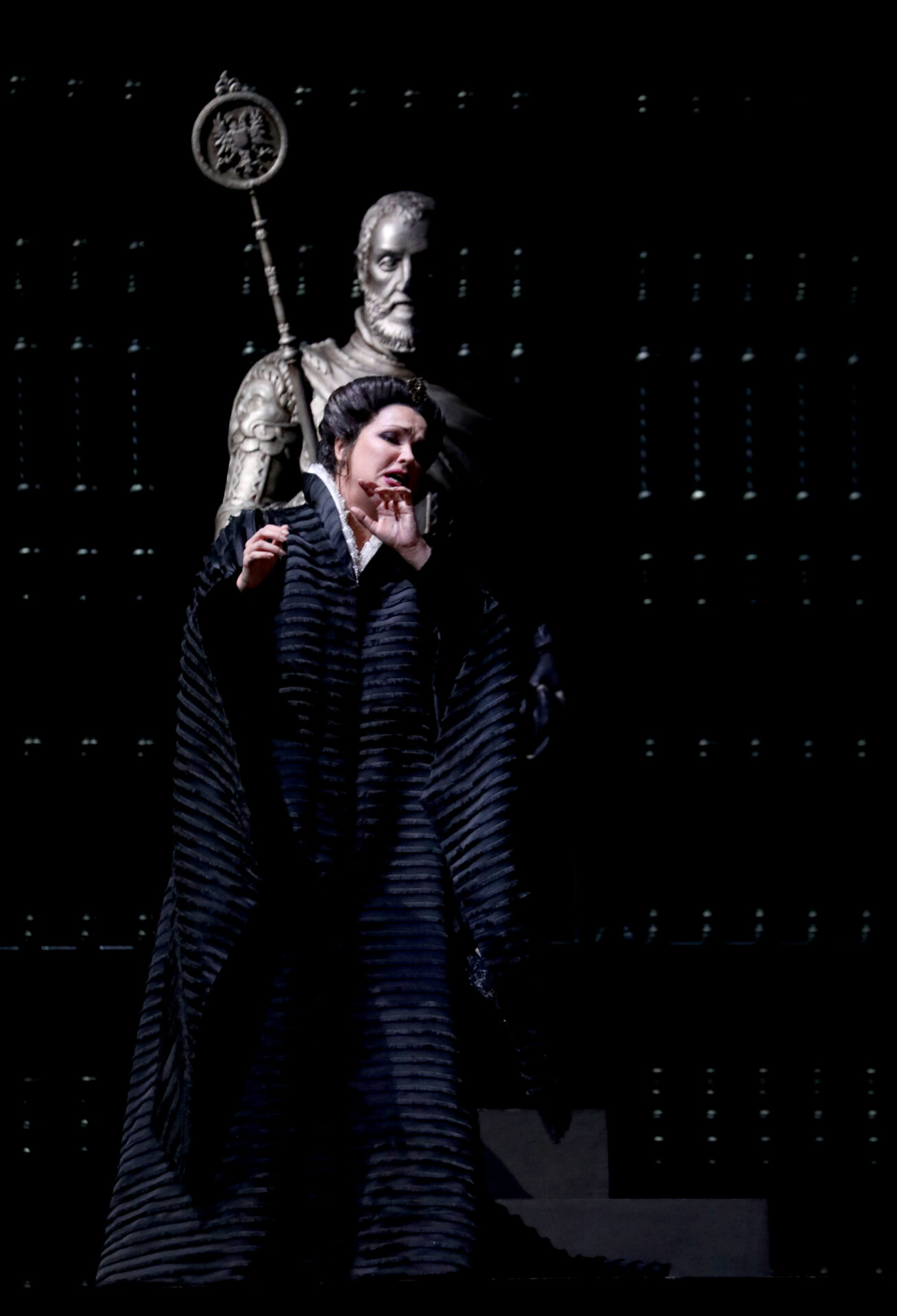
The Italian tenors Francesco Meli and Luca Salsi were incredibly good in the scene of their duets (the famous one in the second act and then in the prison scene in the fourth act), and the singers have a magnificent sense of each other’s presence in episodes where four voices combine in a masterful Verdi’s operatic writing. Garanča is magnificent as Princess Eboli, and her Veil song is so well-articulated that you could hear each nuance of her sound. But there was not much chemistry between her and the Russian star Anna Netrebko – one felt that they were competing for the role of the female diva of the evening. While Garanča’s strong point was poise, strength of the voice and meticulous articulation, Netrebko traditionally excelled in emotionality, passion and detailed intoning of her arias, never letting her emotional side prevail over the nuances of the aria’s development and patiently dosing her singing. She achieved her best in the final aria in the 5th act Tu che le vanitá and deservedly got the never-ending applause from the viewers.
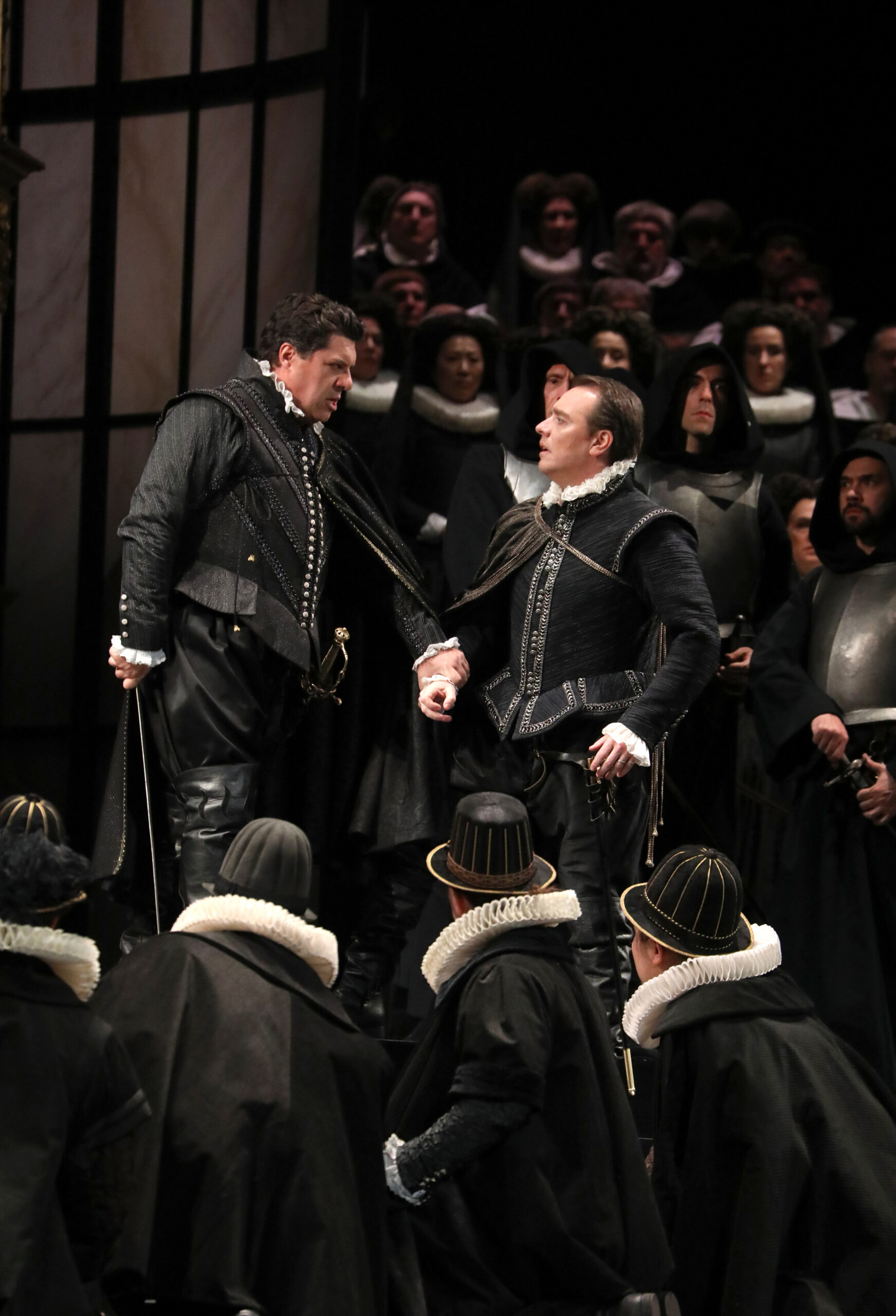
Interestingly, it could be noticed that her stage presence didn’t involve looking into her partner’s eyes, as she was always emotionally distanced from all of them and acting ‘on her own’, while her partners, especially Francesco Meli, were quite different and very supportive to her on stage. Michele Perusi, although it was announced that he had some voice problems, excelled in his moving and psychologically detailed aria of Philip II in the beginning of the fourth act where he complains that his young wife doesn’t love him (Elle giammai m’amó). The choir of La Scala deserves a particular mention, as it gave the needed grandeur to the performance and enhanced its musical brilliance. One didn’t want this evening to end, although it seemed to last forever. With all the flowers falling on performers and the conductor Riccardo Chailly for about 13 minutes, it was indeed a magnificent evening. According to Anna Netrebko’s Instagram post, some members of the cast had visited Giuseppe Verdi’s grave in Casa di Riposo per Musicisti in Milano before the premiere – and it seems that Verdi’s spirit has indeed blessed this musically outstanding performance. Please give it a bit of your free time and watch it on a replay one of those streaming services or RaiPlay – it is worth it!

